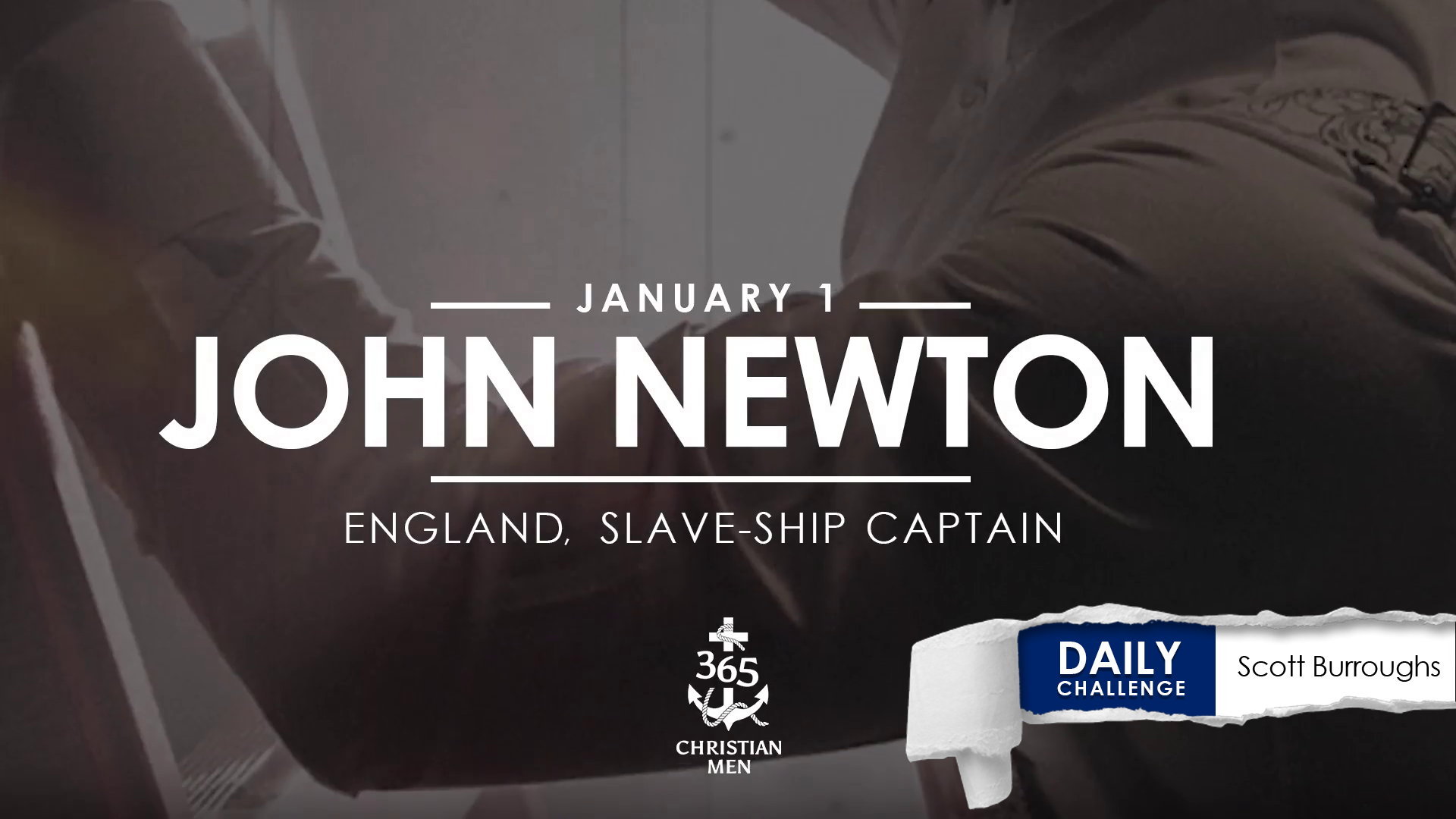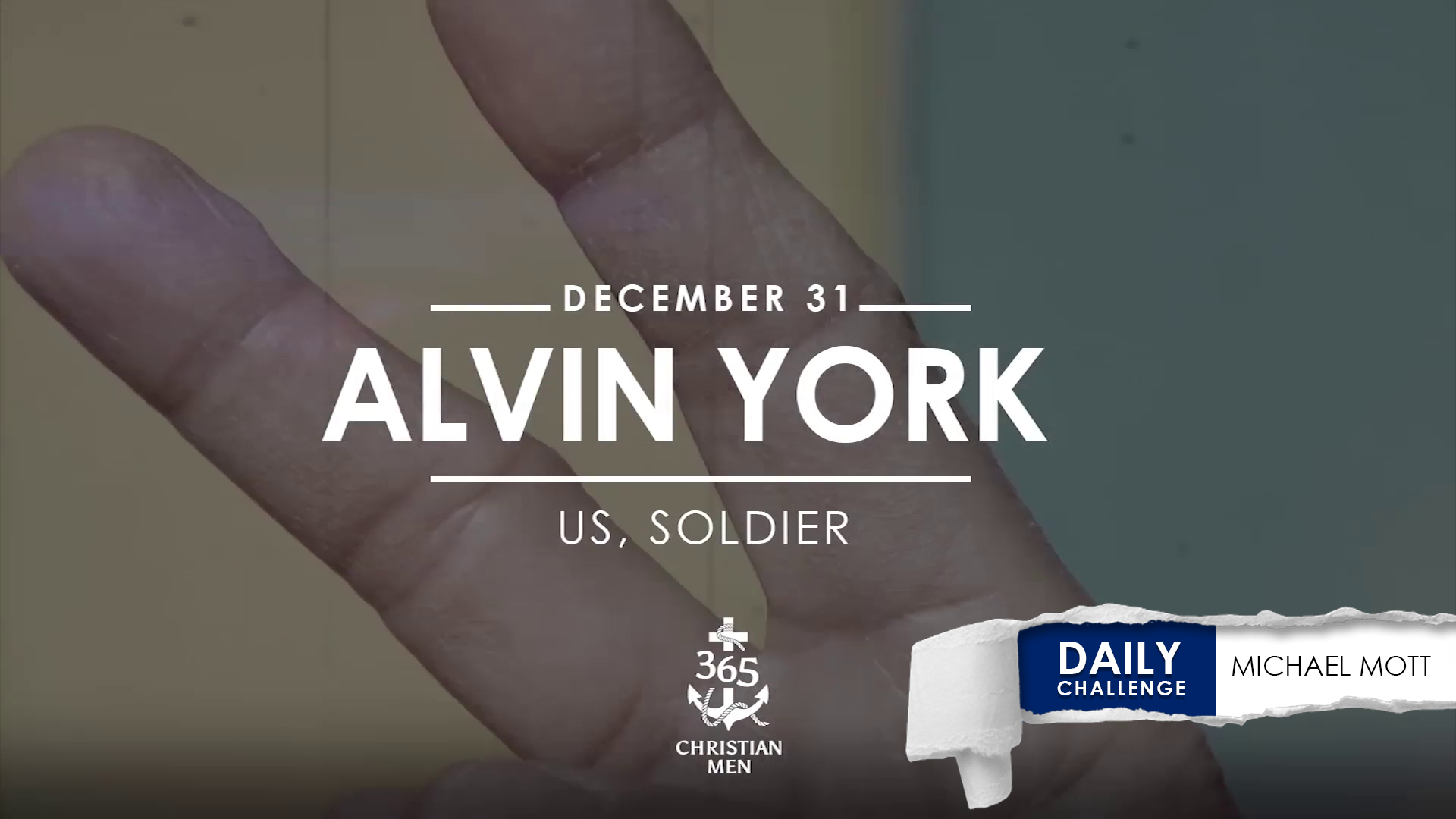January 1. John Newton. Newton spent a number of years trying to get rich by selling human beings. But God saved him and gave him a fruitful ministry. With the poet William Cowper, Newton published a volume of hymns. On this date in 1773, Newton introduced a hymn he wrote—”Amazing Grace.” An executive at Broadcast Music said, “It may be the most recorded song on the planet.” It’s estimated that the hymn is performed 11,000 times a year.
Fifteen years later, he published Thoughts Upon the African Slave Trade. He opened it with an apology for what he had done as a slave-trader and then he described the trade in all its evil atrocity. A copy went to every member of Parliament. Within twenty years, Parliament made the slave-trade illegal in the British empire. Newton was a rich man in the truest sense. Here’s his story.
When a wise man wants God’s help, he’s man enough to ask for it.
The slave ship lurched so hard it knocked John Newton from his bunk. In his captain’s quarters, the floor was already flooded. He scrambled up the ladder and threw open the hatch to the deck.
A flash of lightning struck, lighting the ship as bright as an eerie day, like the moment before a hurricane hit. The upper deck on the port side had been torn away, and as the ship pitched, their precious provisions spilled into the raging sea.
“All hands on deck!” Newton yelled. He refused to panic. “Sound the alarm!”
Torrents of rain engulfed them and made it tough to breathe. They gasped. Tried to talk. But thunder cracked so close, the crash reverberated in the air around them and in their skulls. One moment, lightning illuminated the fractured ship, and the next, its absence plunged them into a sightless void.
With all his strength Newton worked the pump, but water gushed into the ship faster than any human could pump it out. With buckets, kettles, pots, and pans, every crew member bailed to save his life. But the water in the ship continued to rise.
As a slave trader, Captain Newton had been through many storms, but this terrifying tempest made him feel helpless. In his mind, he was 11-years-old again begging his father to get them out of the wind and water. He wanted to live.
Another monster wave crashed against the shattering ship, and Newton cried out now for his Father. His Heavenly Father.
“Please, God,” he prayed, “I know that I am a terrible sinner. No man has ever deserved Your mercy less than I do, but I beg You to help me!” But here he was—a slave-ship captain! Surely, his share of God’s mercy had been spent long ago.
Lungs burning, core muscles screaming, with nowhere else to turn, Newton prayed as fervently as he pumped. And he kept it up.
Then, in new slivers of calm between blasts of wind, Newton heard a sailor yell, “The storm! It’s passing!”
The rush of relief almost undid Newton. “Thank you, Father.”
Nine hours after the storm began, a shaft of late-morning sun streaked through still-angry clouds, and soon the wind gave up its assault. The men breathed easier, though they were still in danger.
Newton ordered every man to strip his bedding and use it to stop the leaks. Towels, pillows, blankets, and clothes were stuffed into the cracks and nailed down with boards to keep the battered ship afloat. They aimed the ship toward England.
With their firewood lost, men huddled together, so they wouldn’t freeze. There was little food left, and what fish they managed to catch by hand, they had to eat raw. Every day they grew colder and weaker. On the tenth day, a man died.
As his men lost hope for salvation, Newton wrestled with God over his own salvation. Many times in his life he had narrowly been saved from death. Each time, he had turned to God, but as soon as the danger was over, he dove back into his life of sin—always deeper than the time before. Why would God answer the prayer of a man like that?
Through long sleepless nights, Newton ransacked the pages of a borrowed Bible until he read the words: “For all have sinned and fall short of the glory of God, and are justified by his grace as a gift, through the redemption that is in Christ Jesus,” (Romans 3:23–24 ESV).
A gift! “If such grace is possible, save me one last time, Lord. And I will serve you till the day I die.”
Eighteen days later, the battered ship made it to the coast of Ireland. As soon as every man stood on shore, the wind picked up. The ship groaned one last protest, tilted severely, and sank.
Knowing that God knows your greatest failures and still extends his grace to you, how does it change your perception of yourself? When a wise man wants God’s help, he’s man enough to ask for it.
Newton, John, Out of the Depths: The Autobiography of John Newton. Read by William Sutherland. Blackstone on Brilliance Audio, August 7, 2018. MP3CD.
Strom, Kay Marshall. John Newton: Angry Sailor. Santa Rosa, CA: Books and Such, 2018.














